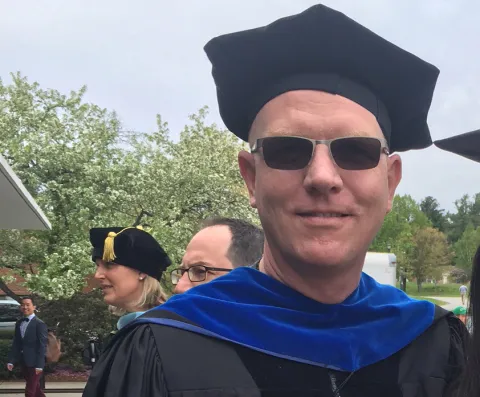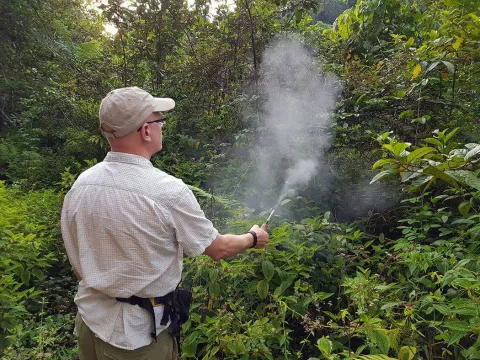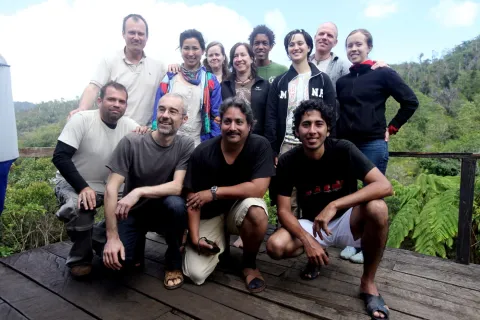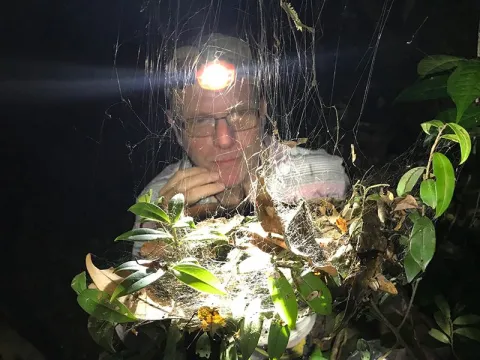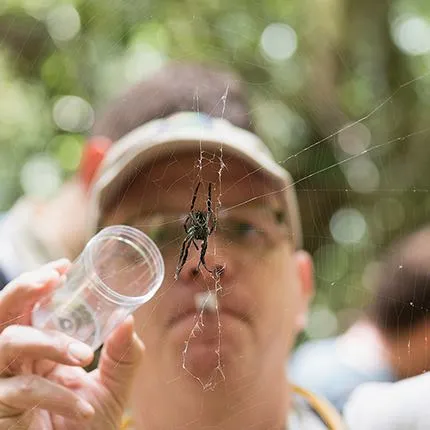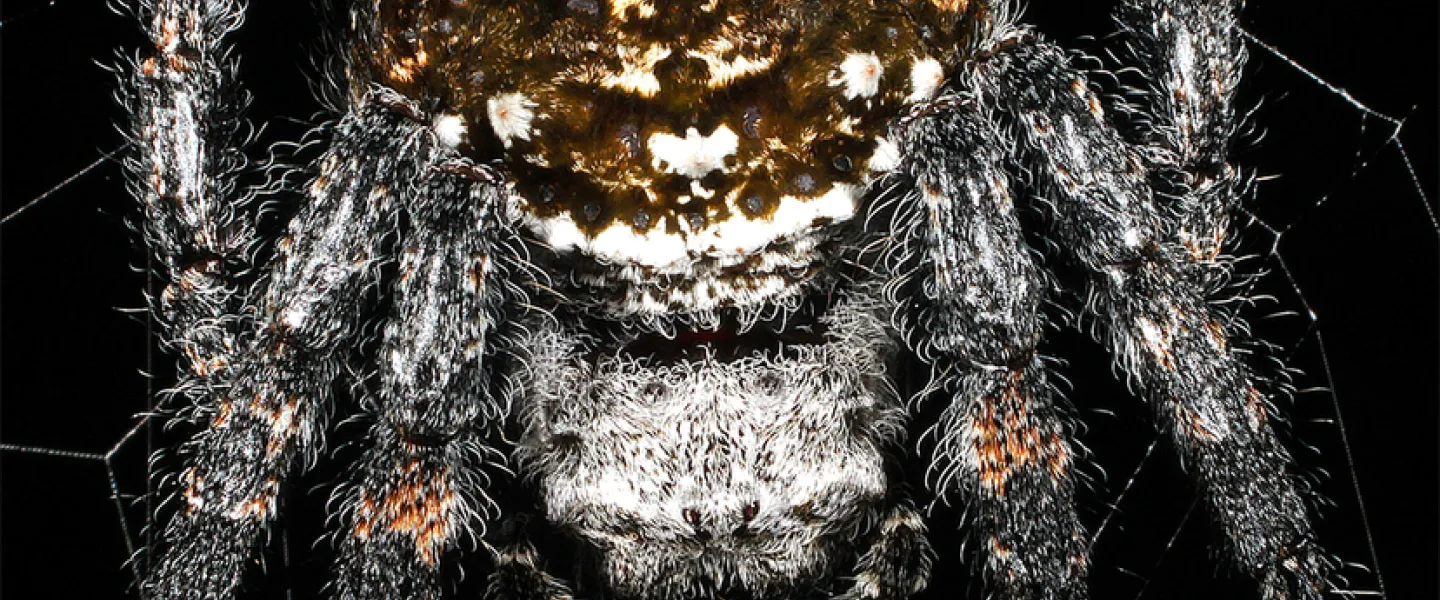
"It's a great misconception that spiders are dangerous or troublesome at all. They get rid of all kinds of pests for us," says Ingi Agnarsson, lecturer in zoology at the University of Iceland. Ingi has around 30 years of experience researching these eight-legged creatures all over the world and has discovered a huge number of new species. He also researches spider silk and discovered the toughest and most elastic material in the natural world – the silk of the Darwin's bark spider, which he and his colleague named in honour of Charles Darwin 150 years after the publication of his famous work On the Origin of Species. New research by Ingi and his colleagues, examining the genome of the species, suggests that the toughness and elasticity of the silk is related to its unique protein combination.
Ingi began work at the UI Faculty of Life and Environmental Sciences earlier this year after almost 25 years living and working abroad, most recently as an associate professor at the University of Vermont. Biology has been part of his life from as early as he can remember. "I was born with a burning passion for biology and I was 5 when I decided and declared that I was going to be a biologist, either an expert in a museum or a professor! I never looked back and I've been lucky enough to know all my life exactly what I wanted to do. It might be in my genes, because my father, grandfather and great-grandfather were all biologists," says Ingi, whose father, Agnar Ingólfsson, and grandfather, Ingólfur Davíðsson, both worked at UI. "Astonishingly, my brother Torfi missed out on the biology genes," smiles Ingi.
Studied the sociality of spiders for his PhD
Ingi completed a BS in biology from the University of Iceland in 1995 and worked at the Icelandic Institute of Natural History before moving to the US to pursue graduate studies at George Washington University and the Smithsonian Institute, where he completed his doctorate in 2004. "I studied taxonomy, analysing the evolutionary relationships and naming of organisms. This discipline is about biodiversity on our planet, the discovery and description of new species and understanding how organisms are connected in the tree of life," says Ingi.
